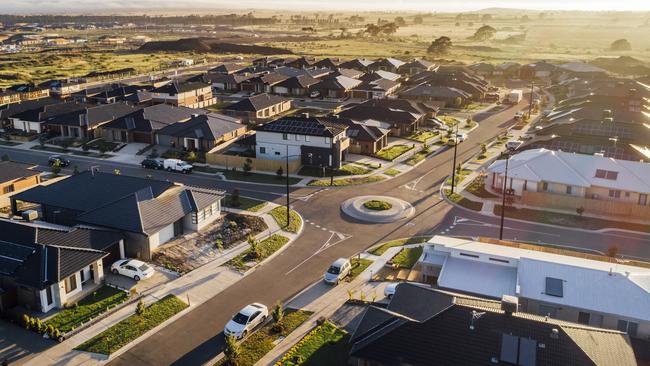Negative gearing policy a $1.5bn voter turn-off
Labor’s negative gearing policy would have shrunk the economy by $1.5 billion, according to new research.

Labor’s negative gearing policy would have shrunk the economy by $1.5 billion and was a key reason for the party’s defeat at the federal election, new research says.
A survey for the Property Council of Australia of 1600 voters across 16 marginal seats in NSW, Victoria, Queensland, Western Australia and Tasmania found that the policies were among reasons given by two-thirds of non-Labor voters for not voting for the party.
Had Labor been successful at the election, negative gearing would have been restricted to new dwellings and grandfathered for people using the tax breaks on existing homes.
Capital gains tax discounts would have been halved.
Separate research for the Property Council, carried out by Deloitte Access Economics, showed rents would have likely increased in Melbourne, Sydney and Adelaide because of reduced housing stock, had Labor been elected.
According to the marginal-seat survey, 34 per cent of voters said the policies were a “very important” reason why they didn’t vote for Labor.
Property Council chief executive Ken Morrison said the research provided a clear verdict on the policies.
“Together these studies conclusively show this was the wrong policy at the wrong time, and the voters knew it,” Mr Morrison said.
“The Deloitte study shows that Labor’s policy would not have achieved the key objectives Labor set out for it.
“It would have delivered a $766 million hit to construction, cost 7800 construction jobs, made almost no difference to housing affordability by 2030, and shaved $1.5bn off GDP at a time we can least afford it.”
Among non-Labor voters, 22 per cent said they would have considered voting for the party had it not proposed changing property tax laws.
While 62 per cent of those surveyed said Labor should get rid of its negative gearing and capital gains tax policy, 68 per cent of those who had previously voted Labor also agreed the policy should be dropped.
More than half of those surveyed thought governments should encourage people to save for their future by investing in property, and 44 per cent wanted to own an investment property in the future.
The strongest supporters of property investment were voters aged between 18 and 39, with 59 per cent agreeing the government should encourage people to save for their future.
Of this group, 65 per cent were interested in owning an investment property in future.
The survey indicated Labor’s proposed change to franking credits on shares for self-funded retirees was another policy that failed to resonate with voters as 34 per cent of those surveyed described it as a “very important reason” they didn’t vote Labor.
Each of the seats surveyed now sits on a margin of less than 6 per cent.




To join the conversation, please log in. Don't have an account? Register
Join the conversation, you are commenting as Logout